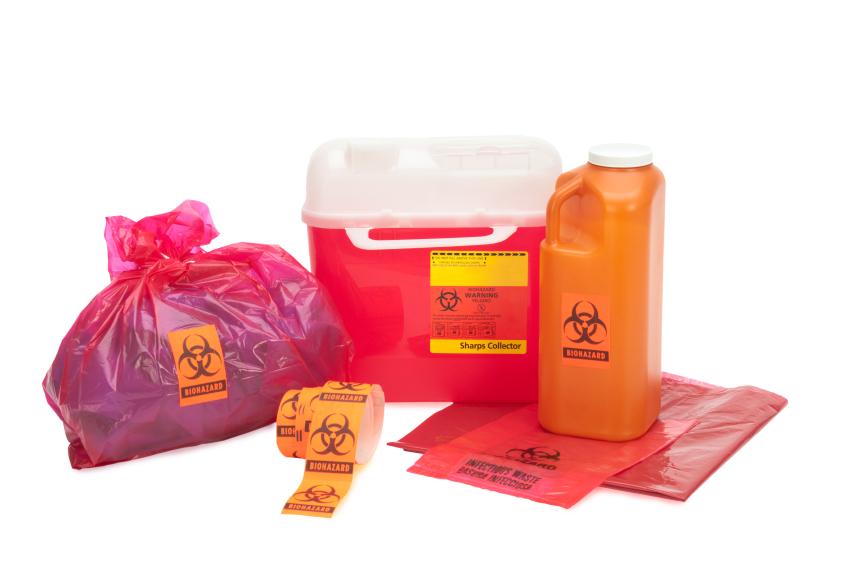Browsing Security: The Crucial Guide to Medical Waste Disposal Best Practices
The Significance of Proper Garbage Disposal Practices
The management of waste is a critical aspect of ecological stewardship that usually goes undetected in our day-to-days live. Appropriate waste disposal practices are not simply an issue of ease yet are necessary for protecting our ecosystems and public wellness. From the repercussions of improper waste disposal on our setting to the long-lasting implications for future generations, the relevance of embracing sustainable waste monitoring practices can not be overstated. By exploring the ecological effect of reckless garbage disposal, the benefits of reusing campaigns, and the importance of community interaction in waste reduction efforts, a much deeper understanding of why correct waste disposal methods are crucial arises.
Ecological Influence of Improper Disposal
Improper disposal of waste poses a substantial threat to the environment because of its harmful results on ecosystems and human health. When waste is not appropriately handled, it can bring about pollution of the air, dirt, and water, triggering injury to numerous plant and animal varieties. click here. Chemicals and toxic substances from improperly disposed waste can seep right into the ground, infecting groundwater resources and affecting the health of both wild animals and people
Furthermore, the build-up of waste in land fills creates greenhouse gases like methane, adding to climate change and global warming. Improper disposal practices also result in littering, which not only breaks down the visual value of the atmosphere but can also damage wild animals with intake or complexity.
To minimize these ecological effects, it is important for individuals and communities to take on appropriate waste disposal practices such as reusing, composting, and accountable contaminated materials disposal. By taking these steps, we can help shield ecological communities, maintain natural deposits, and secure human wellness for present and future generations.
Benefits of Recycling Programs
Routinely taking part in reusing programs uses various advantages for both the setting and society as a whole. Among the essential benefits of recycling is the preservation of natural deposits. By reusing materials such as paper, metal, glass, and plastic, much less raw materials require to be drawn out from the planet, causing reduced logging, mining, and drilling tasks. This preservation of sources not only aids in preserving ecological balance yet likewise adds to sustainable growth.
In addition, recycling plays a vital role in minimizing power usage and greenhouse gas emissions. The production of items from recycled products generally needs much less power contrasted to manufacturing from virgin resources - medical waste removal. As an outcome, the carbon impact connected with the production process is significantly decreased, helping in the battle versus environment adjustment
In addition, recycling programs create job chances in the recycling market, advertising financial development and social well-being. By motivating the recycling and reuse of products, these programs sustain a round economic situation that minimizes waste generation and optimizes source effectiveness, inevitably causing a cleaner, greener future for generations to find.
Hazardous Waste Management Guidelines
Carrying out efficient contaminated materials administration guidelines is crucial for lessening environmental and health and wellness dangers related to the incorrect disposal of harmful materials - click here. Correct handling, therapy, and disposal of hazardous waste are necessary to avoid contamination of soil, water sources, and air
One key guideline appertains labeling of contaminated materials containers to ensure safe handling and transport. In addition, centers need to comply with stringent storage requirements to avoid leaks, spills, or crashes that can threaten human health and wellness and the atmosphere. Regular training programs for employees on contaminated materials monitoring techniques are likewise important to guarantee compliance with regulations and advertise a society of safety and security.
Moreover, contaminated materials must be segregated based on its residential properties to stop chemical reactions that could lead to dangerous situations. Implementing a comprehensive waste monitoring system can assist keep track of the movement of unsafe products from generation to disposal, guaranteeing transparency and liability. By following these standards vigilantly, businesses and markets can contribute to a much safer and cleaner environment for existing and future generations.
Neighborhood Participation in Waste Reduction
To properly deal with the ecological and health threats connected with unsafe waste administration, involving the community in waste decrease initiatives is paramount. Neighborhood participation plays a vital role in advertising sustainable waste monitoring methods and fostering a society of ecological obligation. By enlightening citizens concerning appropriate waste partition, recycling, and composting methods, areas can substantially reduce the amount of waste sent out to garbage dumps, thereby lessening ecological air pollution and conserving natural deposits.
Neighborhood engagement in waste decrease programs also assists in increasing recognition regarding the significance of waste minimization and encourages individuals to embrace eco-friendly practices in their day-to-days live - medical waste removal. Collaborative efforts between local authorities, waste management companies, and neighborhood participants can cause the execution of reliable waste decrease methods customized to the details demands of each area or community
In addition, area interaction promotes a sense of ownership and accountability among residents, empowering them to take aggressive actions in the direction of minimizing waste generation and advertising a cleaner, healthier environment for future and current generations. By interacting towards common waste decrease objectives, neighborhoods can make a considerable influence on mitigating the adverse effects of inappropriate garbage disposal methods.

Future of Sustainable Waste Practices
The development of sustainable waste methods is crucial for advancing ecological stewardship and source preservation in the coming years. As the international population remains to expand, so does the quantity of waste generated (medical waste disposal). Conventional garbage disposal approaches, such as landfilling and incineration, are no longer lasting in the long term because of their substantial ecological impacts. Moving ahead, the future of lasting waste techniques depends on embracing a circular economic situation approach, where resources are reused, recycled, or repurposed to lessen waste generation.
Technical innovations play an essential role in shaping the future of sustainable waste methods. Advanced waste sorting and reusing technologies can help improve the efficiency of waste management processes, allowing for the recuperation of beneficial sources from waste streams. In addition, the fostering of naturally degradable products and composting techniques can help in reducing the amount of natural waste winding up in land fills, consequently alleviating greenhouse gas discharges.
Additionally, promoting customer recognition and education and learning on appropriate waste segregation and disposal practices is essential for driving behavior adjustment towards sustainability. By promoting a culture of waste recycling, reuse, and decrease, neighborhoods can collectively add to a investigate this site cleaner and healthier setting for future generations.

Conclusion
Finally, proper waste disposal techniques are important for reducing ecological impact and advertising sustainability. By implementing reusing programs, handling unsafe waste appropriately, and encouraging area involvement in waste reduction efforts, we can work in the direction of a cleaner and much healthier setting. It is very important for governments, businesses, and individuals to focus on lasting waste practices for the future well-being of our planet.

From the effects of improper waste disposal on our environment to the lasting effects for future generations, the value of taking on lasting waste administration methods can not be overstated. By exploring the ecological effect of reckless waste disposal, the benefits of recycling campaigns, and the value of neighborhood engagement in waste reduction initiatives, a deeper understanding of why proper waste disposal techniques are critical arises.
By educating residents concerning appropriate waste segregation, reusing, and composting methods, communities can significantly lower the amount of waste sent to land fills, thus decreasing ecological contamination and conserving all-natural resources. (click here)
Relocating onward, the future of lasting waste techniques exists in welcoming a circular economy method, where sources are recycled, reused, or repurposed to decrease waste generation.
Advanced waste sorting and recycling innovations can aid boost the effectiveness of waste monitoring processes, enabling for the healing of valuable resources from waste streams.